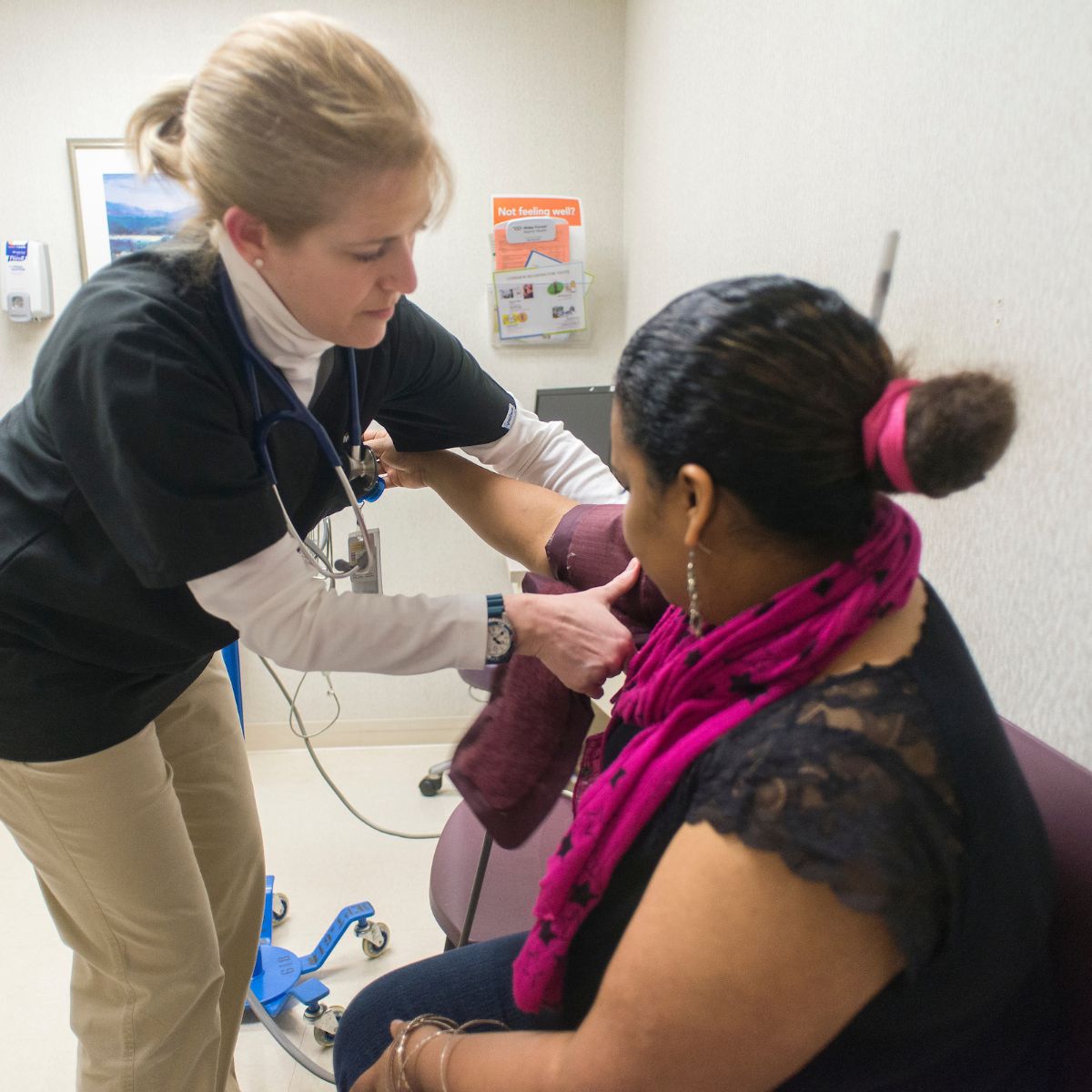
Blood pressure is the force of your blood pushing against the walls of your arteries as your heart pumps blood to your body.
Blood pressure readings are given as 2 numbers. The top number is called the systolic pressure. It is the highest pressure in the blood vessels when the heart is pumping. The bottom number is called the diastolic pressure. It is the lowest pressure in the blood vessels when the heart is resting between beats.
Blood pressure is usually written like this: 140/90. You may hear it said as “140 over 90.”
Blood pressure ranges are:
- 119/79 or lower is normal blood pressure
- 120/80 to 139/89 is prehypertension
- 140/90 or higher is high blood pressure
Prehypertension means that you may develop high blood pressure but you can prevent it with healthy lifestyle changes.
High blood pressure, also called hypertension, that stays high over time can lead to serious problems including:
- Stroke
- Heart failure
- Heart attack
- Kidney failure
- Eye problems
- Dementia
High Blood Pressure Symptoms
You can have high blood pressure for years without knowing it, because it usually has no signs or symptoms. Rarely, symptoms occur only in people in hypertensive crisis (extremely high blood pressure of higher than 180/110). These symptoms include:
- Severe headache
- Fatigue or confusion
- Vision problems
- Chest pain
- Difficulty breathing
- Irregular heartbeat
- Blood in the urine
- Pounding in your chest, neck or ears
- Nose bleeds
The best way to find out whether you have high blood pressure is to have it checked at least every 2 years, starting at age 18, as part of your routine checkup.
High Blood Pressure Risk Factors
Blood pressure changes from minute to minute. Age, time of day, exercise, smoking, emotions, pain and medicines are just a few of the things that can cause blood pressure to change.
Many times we don’t know what causes high blood pressure. We call this type of high blood pressure, essential hypertension.
Risk factors for high blood pressure include:
- Being overweight or obese
- Smoking
- Lack of exercise
- Eating too much salt in your diet
- Not having enough potassium in your diet
- Drinking too much alcohol
- Stress
- Ethnic background: high blood pressure is more common in African-Americans
- Family history of high blood pressure
- Pregnancy
- Age
High Blood Pressure Diagnosis
Your care provider may detect your high blood pressure during your regular checkups. At Atrium Health Wake Forest Baptist, we perform further testing to find the causes of your high blood pressure and to check for possible organ damage. Among the tests your care provider may recommend are:
- Blood and urine tests for cholesterol and hormones
- CT
- Echocardiogram
- Chest X-ray
- Electrocardiogram (EKG)
- Vascular ultrasound
Most of the time, high blood pressure can be controlled with blood pressure medicine and some changes in lifestyle. We will work with you to get you on the right track with a plan of action to keep you healthy. We may recommend:
Medications are taken to help improve your blood pressure. The type of medication prescribed depends on your overall health and if you have any other medical problems. Your care provider can speak to you more about this.
Exercise can help manage stress, lose weight, and lower your blood pressure. The goal is for at least 150 minutes of moderate aerobic activity most days of the week (75 minutes a week of vigorous aerobic activity is even better).
Eat a diet that contains high-fiber foods such as fruits, vegetables, beans, whole grains and nuts. Limit your intake of foods that are high in saturated fats and cholesterol, such as red meat and egg yolks. Replace saturated fats with unsaturated fats from plant and fish oils. Restrict your use of salt.
The chemicals in tobacco harm your blood cells and have a negative effect on the function of your heart and blood vessels. Your care provider can give you strategies to quit smoking.
Alcohol can raise your blood pressure even in healthy individuals. If you choose to drink alcohol, do so in moderation. This means up to one drink a day for women, and up to two drinks for men a day. One drink equals 12 ounces of beer, 5 ounces of wine or 1.5 ounces of 80-proof liquor.
Do so by reading label, choose “low salt” versions of foods or drinks you normally buy. Eat less processed foods. Don’t add salt when cooking, using salt substitutes such as herbs and spices.
Having a high stress level for a long time may put you at risk for high blood pressure, stroke, or heart disease. Reduce your emotional stress by exercising, practicing gratitude and taking time to relax.
If you are overweight, losing weight can help to lower your blood pressure and help reduce future health complications.
Get enough sleep at night – try for 7 to 9 hours.
